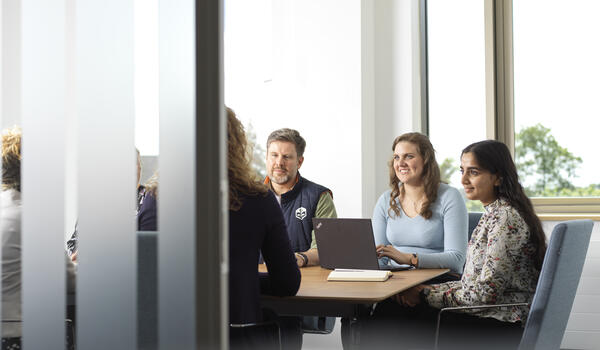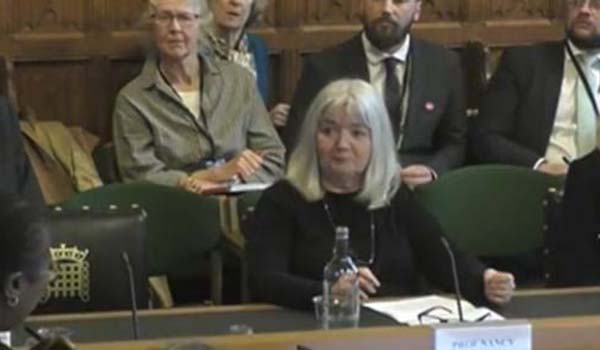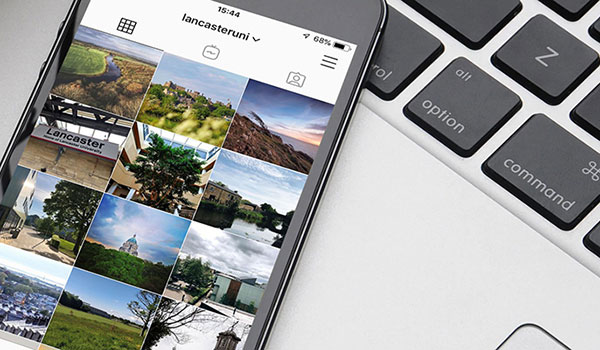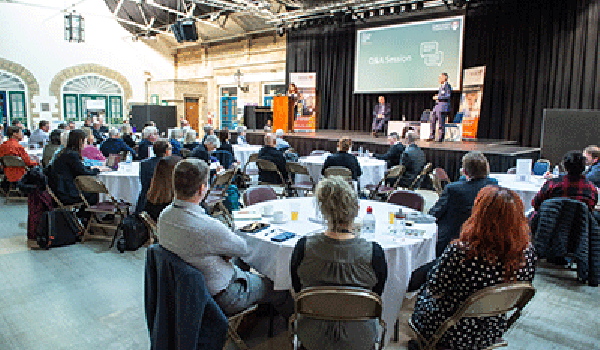In the carrying out effective engagement section there is guidance on defining your purpose, objectives and the people/partners that you wish to engage with. This section provides advice and guidance for working with different groups of people/partners, be that members of the public, community groups, policy makers etc.
.jpg)

Working with businesses and other organisations
There are many reasons for the University wanting to engage with businesses, public and third sector organisations. We can work together to create positive change – increasing productivity, creating new ways of doing things and contributing to economic growth, be that locally, nationally or internationally.
Engagement with businesses can enhance teaching and learning. It can provide real-world problems and experience that can be integrated into the learning experience.
It can provide work experience and internship opportunities- enhancing student employability. Visit the Engagement, Teaching and the Teaching Excellence Framework section for more details.
Working with Business and other organisationsCommercialisation of research
Research Commercialisation is a way for academics, from all disciplines, to create sustainable long-term impact at scale for their research. The Intellectual Property and Commercialisation Team empowers staff and students to create lasting, positive impacts on a broader societal and economic scale. This includes identifying, protecting and commercially exploiting Intellectual Property (IP) arising from research.
Listen to the talking head video from Professor Peter Garraghan. He describes how expertise in AI and machine learning has been used to set up a start-up company out of Lancaster University.
An Intellectual Property (IP) module is available within the Research Integrity online course.
Additionally, a series of in-person workshops are held regularly covering topics such as the basics of IP, patents and the journey to commercialisation. Look out for the workshops in the Staff Events calendar or contact the IPR team: ipr@lancaster.ac.uk.
Accelerator Programmes
An accelerator programme is designed to support researchers and academics in the transition of research findings into tangible products, services, or startups. The programs aim to recognise the potential for innovation within academic institutions and bridge the gap between academic research and real-world impact.
There are a number of programmes available including: ICURE, CyberASAP and ARC


Working with policymakers
Engaging with policymakers can be an effective way to make a difference; your research can be used as evidence for new local or national government policies or change existing ones. You can help create change for the good of society based on your evidence and research.
As well as creating research impact, engaging with policymakers can enhance your reputation and help advance your career.
Working with Policymakers webpageWorking with the public and communities
We work with the public to help shape, carry out and share our research
Two definitions of public engagement are commonly referred to:
The National Co-ordinating Centre for Public Engagement (NCPEE) definition:
‘Public engagement describes the myriad of ways in which the activity and benefits of higher education and research can be shared with the public. Engagement is by definition a two-way process, involving interaction and listening, with the goal of generating mutual benefit.’
and the UK Research and Innovation (UKRI) definition:
Public engagement includes any activity that seek to break down the barriers between research, innovation and society. This can include collaborative research, patient and public involvement (PPI), public dialogue, activity at festivals, museums and science centres, schools' engagement, and much else.
Working with the Public and Communities webpageWorking with the media
The LU Press Office can offer expert advice and practical support to those seeking to share research outcomes with the wider public, media, and academic communities.
Visit the Press Office pages for practical tips on:
- Working effectively with the Press office
- Blogging for the Conversation
- Expert comment on breaking news
- Podcasting
Professor Hilary Ingham from the Economics department has worked closely with the university’s press office to build up a significant media profile over recent years, find out more by watching her talking head video - follow the link to the left.
A workshop on 'We are here to support - voices from the communications/press teams' takes place within the social media for scholarly communications series of workshops. For full details follow the link.
The link below takes you to the LU Press Office webpages. Contact details for your Faculty Media Relations Manager are given within these pages.
Working with Lancaster University Press OfficeWorking with social media
Social media can be a great way of sharing your expertise and instantly reaching a wide audience.
The Social Media team provides guidance on the University, faculty and departmental social media channels. They have developed a social media playbook, with good ideas and useful advice on using social media on behalf of Lancaster University. This includes guidance on creating new accounts, content strategy and analysis.
You are encouraged to seek advice from the Social Media team before undertaking social media engagement. As well as the practical advice they can offer you can explore with them the risks of engaging in this way- such as adverse, negative reactions and comments. This then provides an opportunity for you to mitigate any risks before setting out on your engagement.
Organisational Development offer a series of workshops called, social media for scholarly communications of interest to academic and research staff. For full details follow the link.
The Library offers support and training on the use of Altmetrics Explorer. Follow the link for more information or email: researchintelligence@lancaster.ac.uk
Social media

Working with stakeholders
Engaging with stakeholders can offer a wide variety of opportunities to inform, shape and co-create research, to raise the profile of your work, and to benefit the communities and societies we operate in.
Whether it’s high profile, large scale events, or bespoke, individual meetings or visit programmes, the Stakeholder Relations Team can provide advice on how to identify and map key stakeholders. They can help shape the next steps in engaging with these contacts, and build engagement activities that will develop and enhance meaningful relationships with key figures or organisations. Email: stakeholderrelations@lancaster.ac.uk


